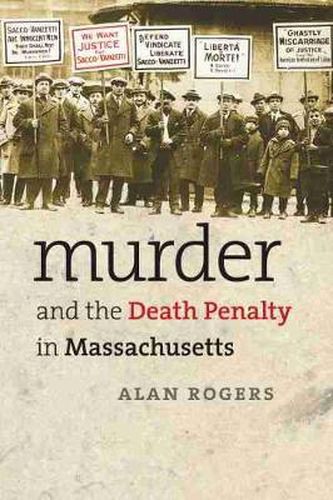Murder and the Death Penalty in Massachusetts
Alan Rogers

Murder and the Death Penalty in Massachusetts
Alan Rogers
For more than 300 years Massachusetts executed men and women convicted of murder, but with a sharp eye on
due proceeding
and against the backdrop of popular ambivalence about the death penalty’s morality, cruelty, efficacy, and constitutionality. In this authoritative book, Alan Rogers offers a comprehensive account of how the efforts of reformers and abolitionists and the Supreme Judicial Court’s commitment to the rule of law ultimately converged to end the death penalty in Massachusetts.In the seventeenth century, Governor John Winthrop and the Massachusetts General Court understood murder to be a sin and a threat to the colony’s well-being, but the Puritans also drastically reduced the crimes for which death was the prescribed penalty and expanded a capital defendant’s rights. Following the Revolution, Americans denounced the death penalty as
British and brutish
and the state’s Supreme Judicial Court embraced its role as protector of the rights extended to all men by the Massachusetts Constitution. In the 1830s popular opposition nearly stopped the machinery of death and a vote in the Massachusetts House fell just short of abolishing capital punishment.A post - Civil War effort extending civil rights to all men also stimulated significant changes in criminal procedure. A
monster petition
begging the governor to spare the life of a murderer convicted on slight circumstantial evidence and the grim prospect of executing nine Chinese men found guilty of murder fueled a passionate debate about the death penalty in the decade before World War I.The trials and executions of Sacco and Vanzetti focused unwanted international and national attention on Massachusetts. This was a turning point. Sara Ehrmann took charge of the newly formed Massachusetts Council Against the Death Penalty, relentlessly lobbied the legislature, and convinced a string of governors not to sign death warrants. In the 1970s the focus shifted to the courts, and eventually, in 1980, the Supreme Judicial Court abolished the death penalty on the grounds that it violated the Massachusetts Constitution.
This item is not currently in-stock. It can be ordered online and is expected to ship in approx 4 weeks
Our stock data is updated periodically, and availability may change throughout the day for in-demand items. Please call the relevant shop for the most current stock information. Prices are subject to change without notice.
Sign in or become a Readings Member to add this title to a wishlist.


